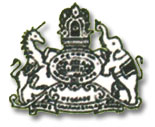/regions/karnataka
Karnataka
Traditional water management practices and water sector reforms in South India - A comparative analysis of three systems and Participatory Irrigation Management policy - Paper presented at the National Seminar on Water and Culture (2007)
Posted on 30 Jan, 2011 06:13 PMThe authors study three tanks; one each in Karnataka, Andhra Pradesh and Kerala and find that almost all tanks in Southern India face similar problems that include farmers in command area being deprived of water, siltation, lack of proper maintenance of such structures, lack of political will to decentralise authority to tank institutions etc.
Traditional water management practices in coastal Karnataka - Paper presented at the National Seminar on Water and Culture (2007)
Posted on 30 Jan, 2011 04:10 PMTh paper begins with a brief history of the region of Southern Kanada, its geography and the religious practices of the region. Some of the key features of this region includes an abundance of rivers though they mostly are rain-fed.
Suranga: A sustainable water resource - Paper presented at the National Seminar on Water and Culture (2007)
Posted on 30 Jan, 2011 02:18 PMThis paper explores Surangas, which are an ancient water system based on tunnels bored horizontally on the slopes of hills to get drinking water. These structures are mainly found in the laterite soils of Dakshina Kannada region and some parts of Kerala and Goa.
Preservation of Mysore urban water bodies - Paper presented at the National Seminar on Water and Culture (2007)
Posted on 30 Jan, 2011 04:00 AMThis paper presents the status of lakes in Mysore. It gives emphasis to the Socio-Economic Natural Complex - Lake Ecosystems (SENCLE) model of lake preservation and management which includes socio-technical aspects of lake care.
Glimpses of the historical water bodies in the Vijaynagar dynasty - Paper presented at the National Seminar on Water and Culture (2007)
Posted on 30 Jan, 2011 03:44 AMThis paper uses secondary data to showcase the water bodies that were built in the Vijayanagar Empire. The author states that there were 88 such water bodies and these were used for irrigation purposes and also for consumption.
Decline of tank irrigation institutions in South India - A case-study of Tamil Nadu - Paper presented at the National Seminar on Water and Culture (2007)
Posted on 30 Jan, 2011 03:34 AMThe author gives a brief history of tank irrigation in South India. The number of irrigation tanks in India were 208,000, of which 120,000 were in the three Southern states of Andhra Pradesh, Karnataka and Tamil Nadu. These tanks irrigated 1.8 million hectares. The author uses graphs to point out to the decline in tank irrigation.
Sri Kshethra Dharmasthala Rural Development Project organizes 3 days Krishi Mela, 4th to 6th Feb, Bajagoli near Udupi
Posted on 28 Jan, 2011 05:49 PM Organizer: Sri Kshethra Dharmasthala Rural Development Project
Organizer: Sri Kshethra Dharmasthala Rural Development Project
Venue: Government Pre-University College grounds, Bajagoli, Udupi
Description:
Sri Kshethra Dharmasthala Rural Development Project (SKDRDP) will be organising its 31st annual three-day Krishi Mela at the Government Pre-University College grounds at Bajagoli in Udupi district from 4th to 6th February, 2011.
Workshop on Financial Management & Social Accountability for Non profit & Charitable organisations, Visthar, 2nd to 6th May, 2011, Bangalore
Posted on 28 Jan, 2011 05:26 PMOrganizer: Visthar, Bangalore
Venue: Visthar, Bangalore
Description:
Visthar, Bangalore has been facilitating this workshop for the past three years and this has been well attended and well received among NGOs, Civil Service Orgnisations(CSOs) and other Charitable Orgnisations(COs).
Zero Waste Management Event on Sunday, Green Path ECO, 30th Jan 2011, Bangalore
Posted on 28 Jan, 2011 11:14 AMOrganizer: The Green Path ECO Foundation
Venue: The Green Path ECO Hotel, Bangalore
Events:
- Film show
- Presentation
- Skit by children
- Followed by discussion and hands on experience
Volunteering opportunity in a wetlands project near Hampi
Posted on 24 Jan, 2011 06:41 PMThis pond and wetland is the first stage of creating a wildlife field station and research center for WildlifeSOS in Ramdurga Valley.
The wetland will be both for habitat and as a safe water source for wildlife. Concurrent with the construction of the wetland will be the design process for the field station and site. Volunteers will assist in both these processes with the primary task of completing construction of the wetlands. Long afternoon breaks and evening's slow relaxation will be time for learning, discussions and wandering conversations. Areas of discussion may include: Permaculture basics (principles, flows, patterns, zonation), site analysis, water, soil, plants and cropping, animals systems, appropriate technology, invisible structures (economic, cultural and social systems), design and local to global sustainability.